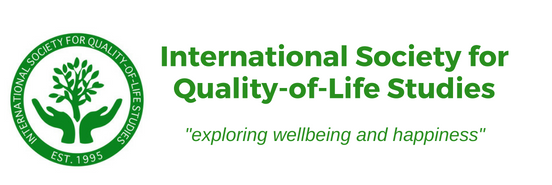Call for Chapter Proposals Aug 20 .pdf
The aim of this book is to provide an overview and explore relationships between social (in)equality, community well-being and quality of life. As an area of accelerating interest, we seek to explore the connectivity of these three concepts. The book has four broad areas: Social (In)Equality: Social (in)equality is a highly relevant topic in the social sciences. Its definition, elements and characteristics, and causes and consequences vastly differ depending on the country and its context. The origins of the study of inequality include being grounded in anthropological studies where it is examined by comparing egalitarian versus inegalitarian relationships and societal structures. In general, social inequality refers to relational processes in society that have the effect of limiting or harming a group or community's social status, social class, and social circle. It may emerge through a society's understanding of appropriate gender roles, or through the prevalence of social stereotyping. In many cases, social inequalities exist between differing racial, ethnic or religious groups, classes and countries, making the concept of social inequality a global phenomenon. Situations are exacerbated given the pandemic which has brought to light underlying inequities and structural barriers to fostering social equality. Social inequalities are also deepening for vulnerable populations in countries with weaker health systems and those facing existing humanitarian crises. Global social justice movements focusing on racial and ethnic inequalities as exemplified by the Black Lives Matter movement in the United States to the pressing need for recognition of indigenous rights globally highlight systemic community ill-being and inequalities. Refugees and migrants, as well as indigenous peoples, older persons, people with disabilities and children are particularly at risk of being left behind. Reducing inequalities and ensuring no one is left behind are integral to achieving the United Nations Sustainable Development Goals, as reflected in Goal 10: Reduce inequalities within and among nations in order to advance equity in social development as well as economic and environmental development. One of the objectives of this book is to explore the contextual perspective of the definition of social inequality, its characteristics, causes and consequences. Comparative scenarios between two or more different counties or regions are also welcome. Community Well-being: Community well-being continues to be of interest and is being included in a variety of studies across a range of disciplines. The definition, scope, characteristics and its importance are extensive depending again on the country and its context although there are some commonalities. Community well-being is the combination of social, economic, environmental, cultural, and political conditions identified by individuals and their communities as essential for them to flourish and fulfil their potential (Wiseman and Brasher, 2008). This book attempts to conceive the concept from a global perspective that captures diverse community and country experiences. We are open to any innovative community wellbeing approach that is practiced by organizations in a particular community at a small scale but may also have wider applications for regional and global learning. Topics about the measurement of community well-being across communities, regions, nations and political systems are important for international readers. Quality of Life: Quality of life is possibly one of the most trending issues of study currently. It is a multidimensional concept with a complex causality of the mutual bonds of its components (variables) that enable us to grasp, describe and measure the complexity of social and economic reality in the current period of late modernity (Murgaš and Klobučník, 2017). The major components of quality of life include health, material comforts, personal safety, relationships, learning, creative expression, opportunity to help and encourage others, participation in public affairs, socializing, and leisure. Quality of life has different panoramas and is inherently interdisciplinary bringing together interests from health and social sciences. Debate on whether the scope of this concept has universal acceptance heightens interest. It is also argued that many countries and organizations have developed specific indicators of quality of life, but the application of these indicators may not always fit context and overall socioeconomic, cultural and political conditions. This book will explore such contextual perspectives of quality of life with appropriate contextual examples. We will also seek to provide discussion of the connections and differences between global indicators of quality of life and how countries’ quality-of-life index varies. Connecting Social (in)equality, community well-being and quality of life: We seek chapters on the relationship between social (in)equality, community well-being and quality of life. Social equality is an important term for social well-being and for influencing quality of life and viceversa. Though there is not definitive clarity about this relationship, it emerges as an important issue adjacent to the United Nations Sustainable Development Goals. Literature shows that social inequality has a vital influence on achieving community well-being, which in turn impacts quality of life. Exploring these relationships will provide insights for academics, researchers, policy makers and development practitioners. Timeline and Process Chapter Proposal submission date: October 30, 2020 Full paper submission date: January 15, 2021 Tentative publication date: Fall 2021 We are pleased to invite scholars, researchers, policy makers, environment and social scientists and specialists to contribute a chapter on the above title/subject. The first step is to submit an abstract for your proposed chapter by October 30, 2020. Please note proposals and chapters submitted will undergo peer review. Send your abstract of no more than 400 words along with three to five keywords and a short bio of the author(s). Send to rezauldu@gmail.com and cc to rphillips@purdue.edu and pkraeger@georgiasouthern.edu. Edited by: M. Rezaul Islam, Ph.D., University of Dhaka, Bangladesh, rezauldu@gmail.com Patsy Kraeger, Ph.D., Georgia Southern University, USA, pkraeger@georgiasouthern.edu Rhonda Phillips, Ph.D., Purdue University, USA, rphillips@purdue.edu
